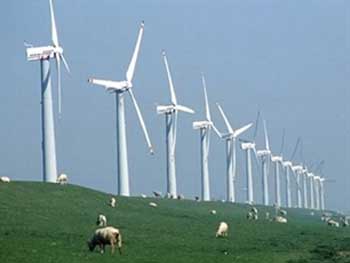
|
He highlighted the energy sector’s great contribution to Vietnam’s Renewal (Doi Moi) process, saying that it has experienced significant development in the exploration, exploitation, production, transmission, distribution and import-export of energy.
In 2008, 94.22 percent of households in rural areas had access to electricity, much higher than the 3 percent in 1976 or 14 percent in 1992, Nhan said.
The Deputy PM also pointed out the shortcomings of the sector, such as poor efficiency and low per capita consumption compared to the world’s average figures.
The development of electricity in rural and remote areas still faces difficulties, he noted.
Deputy PM Nhan said Vietnam needs to increase energy efficiency through building a policy framework and diversifying supply sources.
Investors should take into account energy subsidy, promote the development of renewable energy, and seek additional financial sources to develop the power network to every household.
He expressed his belief that Vietnam will be able to meet its target to provide everyone with electricity as the country builds a green growth strategy to serve sustainable socio-economic development.
The strategy is part of the government’s effort to restructure the national economy and cope with global challenges such as climate change and food security, he said.
Nhan also called for financial and technological assistance from the international community to help Vietnam build national, regional and local energy plans; reduce greenhouse gas emissions by 2050, shift the sector to a market economy-based mechanism; develop renewable energy from nuclear; wind and solar sources; and transfer energy-saving technologies.
VietNamNet/VOV